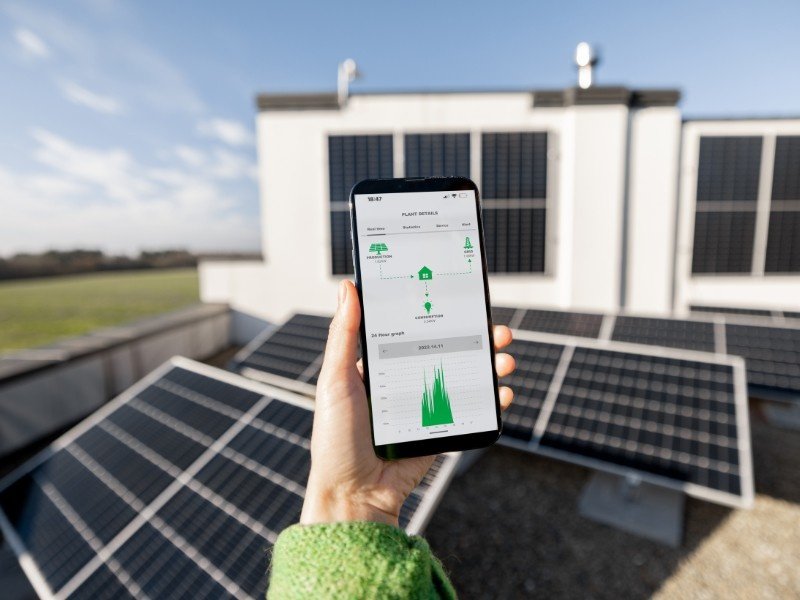Are you thinking about switching to solar energy? Well, now might be the perfect time to do it. Solar power is becoming more popular than ever and for good reasons.
With the rise of energy costs and environmental concerns growing, solar energy offers a sustainable and smart solution for homeowners. It is not just about saving money, it is about investing in a cleaner, brighter future for yourself and the planet.
Let us explore why you should consider going solar right away.


Advantages of Adopting Solar Energy for Your Home
- It is Cheaper Than Ever:
Good news! Solar panels are more affordable than they have ever been. Thanks to the advancement in technology and increased production, the cost of solar panels has dropped significantly. But that is not all – there is even better news-
The government is also keen on promoting solar energy. While the specific incentives may vary by state, many offer subsidies based on the capacity of your system-
| System Capacity | Subsidy Amount |
|---|---|
| Up to 3 kW | Rs. 18,000 per kW. |
| 3 kW to 10 kW | Rs. 18,000 per kW for the first 3 kW, and Rs. 9,000 per kW for the extra capacity. |
| Heavier than 10 kW | Rs. 78,000. |
Or other financial benefits for installing rooftop solar systems. For example, some states in India provide capital subsidies that can cover a portion of the installation cost.
It is essential to check with your local solar installers or state renewable energy department for the most up-to-date information on incentives and financing options in your area, as these can change over time.
2. Save Money On Your Energy Bills:
One of the biggest reasons to go solar is the potential to save money on your monthly energy bills. Think about it – once you have solar panels, you are making your electricity from the sun. That means you will need to buy less power from the utility company.
How much you save depends on a few things:
- 1
How much electricity do you use?
- 2
How big is your solar system?
- 3
How much power can your system generate?
In many cases, people find that their solar panels can cover most or all of their electricity needs. Some even produce extra power which they can sell back to the grid, earning money from their solar investment.
3. Increase Your Home’s Value:
Here is something you might not have thought about – solar panels can make your house worth more money. Like a new kitchen or a finished basement, solar panels are considered an upgrade to your home.
Studies have shown that homebuyers are often willing to pay more for a house which already has solar panels installed. So when you ever decide to sell your home, your solar investment could pay off even more.
4. It is Clean And Green Energy:
If you care about the environment, solar energy is an excellent choice. Unlike many other ways of making electricity, solar power does not create pollution or harm the environment. It does not produce greenhouse gases or pollute water. It is one of the cleanest forms of energy we have.
Solar panels also do not make any noise when they are working. This is especially nice if you live in a city or a busy area. You can make your power without bothering anyone.
5. It Works Almost Everywhere:
You might think you need to live in a super sunny place to use solar power, but that is not true. Solar panels can work well in all sorts of climates. Even in places with long, cold winters like Alaska, there is still enough sunlight to power the average home.
Solar technology keeps getting better, too. Researchers are always working on ways to make solar panels that perform well in all kinds of weather and climates.
6. Reliable And Low Maintenance:
Solar panel systems are pretty tough and do not need much maintenance. Usually, you just need to have them cleaned a couple of times a year. And it is best to have this done by experts who know what they are doing.
The only part you might need to replace after a while is the inverter, which generally lasts 5-10 years. Other than that, solar panels can keep working for 25-30 years or even longer. Hence, it gives you your investment’s worth even in terms of its long life.
7. You Do Not Even Need To Own A House:
Did you think that you can not go solar because you rent or live in an apartment? Many places now offer community solar programs. These let multiple people share the benefits of a single solar system, even if it is not on their roof.
With community solar, you can buy a share of a larger solar project. This way, you still get the benefits of solar power without needing to install panels on your property.
8. Peak Performance When You Need It Most:
Here is an interesting fact – solar panels produce the most energy during the middle of the day and early afternoon. This happens to be when electricity demand (and prices) are often at their highest.
By generating your power during these peak times, you are not only saving money but also helping to reduce the strain on the power grid. This can lead to more stable electricity prices for everyone.
9. Improves Grid Security:
The more people who use solar power, the more secure our electricity grid becomes. Instead of relying on a few big power plants, a grid with lots of solar users has thousands of small power generators spread out all over the place.
This makes the whole system less vulnerable to problems like blackouts or natural disasters. If one area has an issue, it does not affect everyone else as much.
10. Energy Independence:
When you go solar, you are taking a big step towards energy independence. You are making your power right on your roof. This means you are less dependent on the power company and less affected by rising energy costs.
Plus, with a solar-plus-storage system (that is solar panels combined with batteries), you can keep your lights on even if the power grid goes down. This can be helpful during storms or other emergencies.
So why wait? Start exploring your solar options today and join the millions of homeowners already enjoying the benefits of clean, renewable solar energy!

